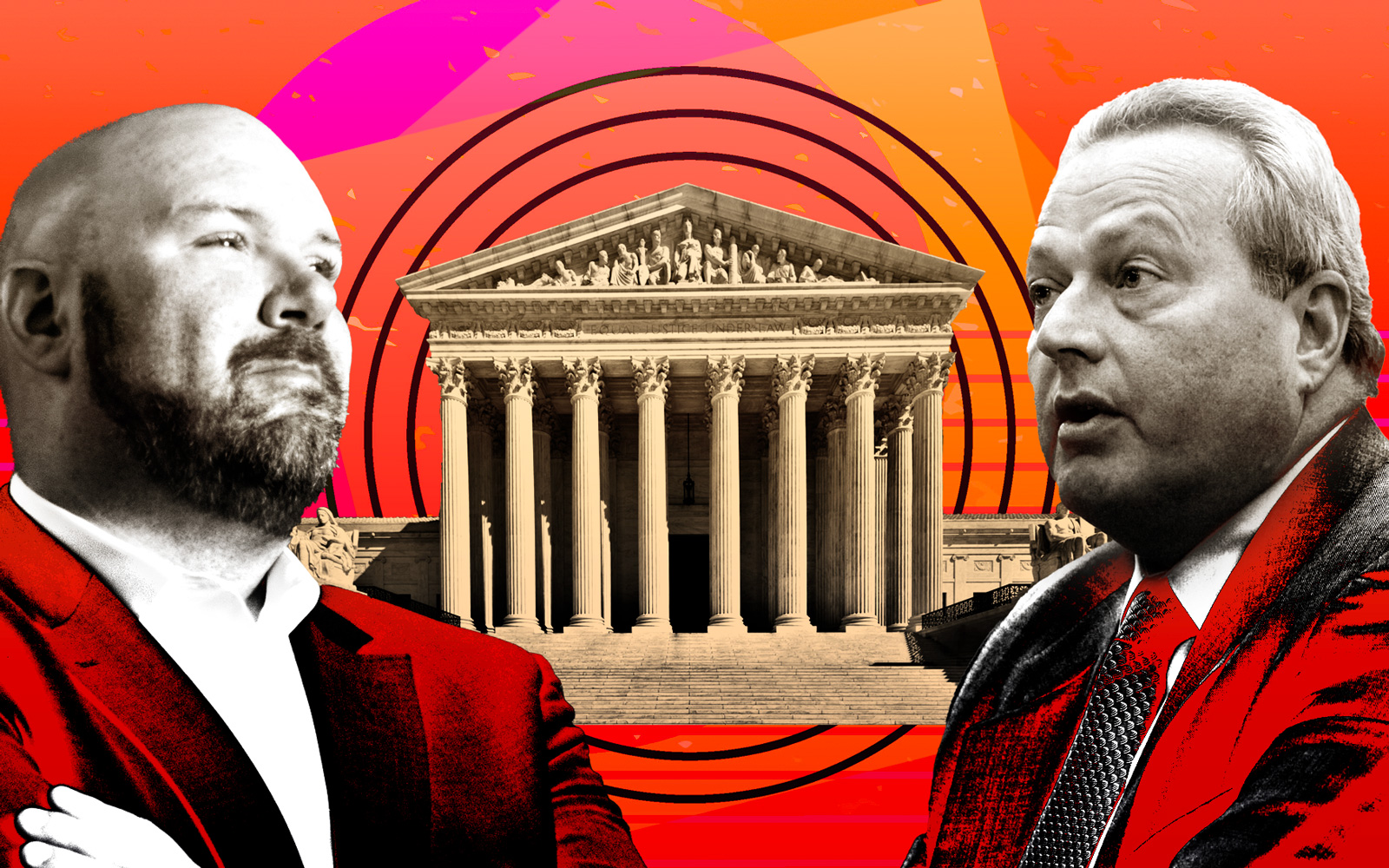As homeowners’ horror stories pile up, New York lawmakers are pushing to roll back so-called squatters’ rights.
Sen. Mario Mattera and Assembly member Ed Flood introduced a bill that aims to help owners remove squatters from their properties. The Republicans’ measure is modeled after one just approved in Florida and is part of a broader package of bills geared to stopping intruders from exploiting protections afforded to legitimate tenants.
The idea is to shift the burden of proof from the property owner to the squatters to demonstrate that they belong in the residence.
But the bills also have provisions to deter property owners from misusing them against tenants.
If an owner wrongfully has a person removed, the victim can file a civil action and is entitled to damages that include triple the value of the apartment’s rent, court costs and attorney fees. This includes cases where the occupant is a current or former tenant, or a relative of that tenant, or there is pending litigation between the owner and that person.
The bill package targets a section of New York property law that describes a tenant as an occupant of a home “who has been in possession for 30 consecutive days or longer.” Tenants can only be removed through a formal eviction process, which in New York’s housing courts can take one or two years and sometimes longer.
That allows squatters time and leverage to stay for extended periods without paying, even if they initially entered without authorization and have never signed a lease.
“It takes so long to get through the court system that it becomes grotesquely unfair to the owner who has someone squatting on his or her property,” said Joshua Price, an attorney who represents both landlords and tenants.
But there isn’t consensus on what parts of existing law are loopholes, nor on whether people are frequently taking advantage of it.
Statistics on squatter-related cases in the city are not readily available. Tenant and landlord attorneys in Queens recently told Gothamist that such cases remain rare despite a recent spike in news stories.
In fact, another section of the state’s real property law specifies that a squatter or someone who otherwise intrudes on a property without the owner’s permission does not have a landlord-tenant relationship.
That section of the law also states that a property owner can initiate an eviction after providing the intruder a 10-day notice. A 1994 appellate court decision specified that this option “does not replace an owner’s common-law right to oust an interloper without legal process.” In other words, owners can instead call the police to report that someone has broken into their home.
However, given the conflicting laws, police sometimes refuse to do so, leaving owners no choice but to slog through housing court.
The 2019 rent law added a section that requires a special proceeding to remove a tenant, but that pertains to someone who has “lawfully occupied” a unit.
Ellen Davidson, an attorney with the Legal Aid Society, said she is “mystified” by recent interpretations of the law, and expressed concern that the new bills aim to expand the definition of squatter from a trespasser to simply a tenant disliked by the landlord.
Assembly member Jake Blumencraz and Sen. Patricia Canzoneri-Fitzpatrick introduced a separate measure earlier this year that excludes “squatters” from eviction protections that apply to tenants. The bill seeks to increase the 30-day threshold to 45 days, and to exclude squatters, as well as anyone who occupies a property “without payment of rent.”
Davidson said that could affect tenants who withhold rent until the landlord makes necessary repairs.
“Basically, the reasons for these bills are a media-created crisis that no one thinks exists,” she said.
Yet, cases can get messy. Sometimes police are called, squatters show paperwork to claim they are legal tenants and things get complicated.
A Queens woman who discovered people in her home was arrested after changing the locks. One of the residents told the New York Post that he was tricked into subletting the home’s basement for $1,500 by a squatter posing as a broker.
Another measure from Mattera would, like Blumencraz’s bill, change the definition of “occupant” to exclude squatters and trespassers when it comes to eviction protections. That includes protections against so-called self-help evictions, in which a landlord changes the locks or shuts off the heat in a bid to get rid of tenants.
Usually, a person kicked out of an apartment forcefully or unlawfully and kept out by force or fear of violence is entitled to file a complaint and recoup treble damages. Another measure introduced by Mattera seeks to exclude squatters from the definition of “person” as it applies to these damages.
Mattera acknowledged that these other bills will likely be a tougher sell for Democrats, who control both houses of the state legislature. But he is hopeful that the measure modeled after Florida’s law, which aims to make it easier for owners to have squatters immediately removed, will garner enough bipartisan support to pass. Blumencranz’s bill already has some support from Democrats.
“The court system is not gone in this process,” Blumencraz said. “If those people want to go to court, they still can. They just can’t do it from the unit that they are squatting in.”
Read more



